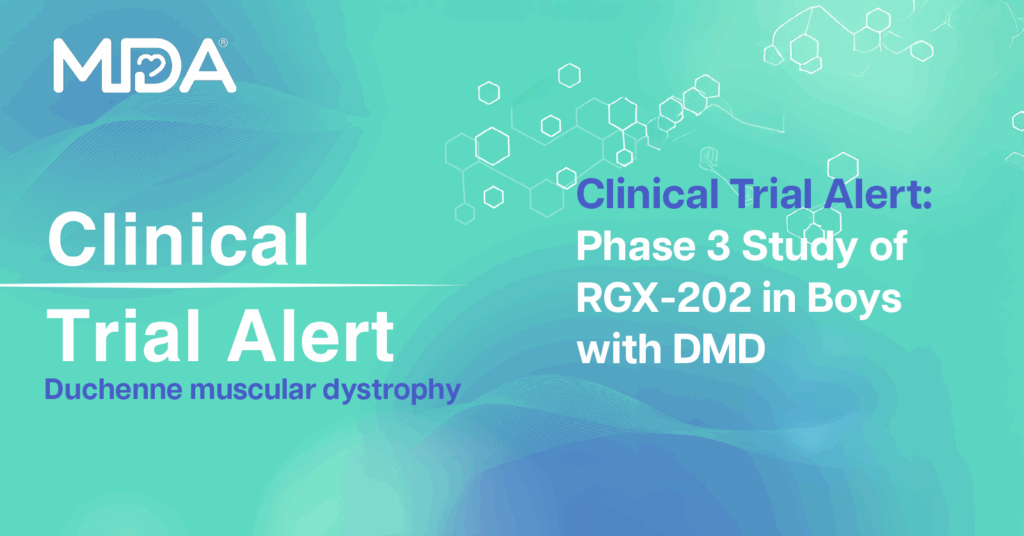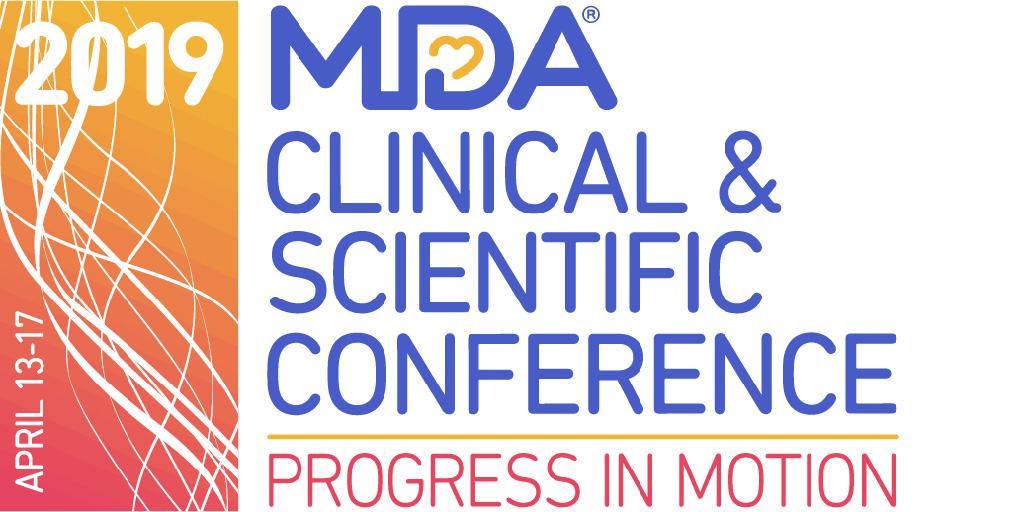
2019 Clinical & Scientific Conference Highlight: Neuromuscular Disease Impacts Cognition and Behavior, Too
By Ori Rokach | Tuesday, July 9, 2019
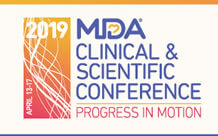
Healthcare providers who work with patients diagnosed with neuromuscular disease (NMD) must consider the impact of these diseases on cognition and behavior, said presenters at a 2019 Clinical & Scientific Conference session focusing on mental health. Indeed, there is an indirect connection between NMD and mental health, but Dr. John Day from Stanford University, Dr. Brad Boeve from Mayo Clinic, Dr. Chiara Manzini from George Washington University, and Dr. Francesco Muntoni from University College London said that there is a direct connection as well. Mechanisms of disease can impact a patient’s mental health and cognition.
In DMD
Duchenne muscular dystrophy (DMD) is the most common muscular dystrophy, with an incidence of 1 in 5,000 live male births. Boys diagnosed with DMD have a mutation in the dystrophin gene, which is responsible for keeping the muscle cell membrane whole while muscles contract. As a result, people with DMD experience muscle weakness and wasting.
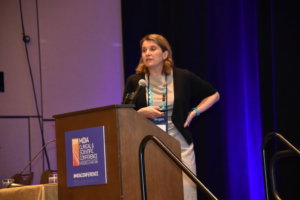
Dr. Chiara Manzini
In addition to skeletal and heart muscle degeneration, half of patients with DMD might have severe central nervous system (CNS) co-morbidities (the simultaneous presence of two or more conditions). These co-morbidities might include intellectual disability, developmental problems, attention deficits, hyperactivity disorders, and obsessive-compulsive disorder.
In the CNS, dystrophin is responsible for the localization of synaptic proteins (proteins located at the synapse of nerve cells) during development, maturation, and migration.
The dystrophin gene encompasses 79 sections (called exons) that are encoded separately by various genetic sequences in different combinations, creating a variety of versions called isoforms. Different isoforms express in specific tissues. Therefore, mutations in the dystrophin gene might have a disparate impact on different tissues, eliciting a variety of disease expressions.
Dr. Muntoni described how mutations in the brain isoforms Dp71 and Dp140 are frequently associated with low IQ scores. Twenty-six percent of boys with DMD have intellectual disabilities, 24% are hyperactive, and 44% have attention deficits. Dr. Muntoni suggested that understanding the associated comorbidities might lead to their early recognition and better management.
In DM
Myotonic dystrophy (DM) is caused by the expansion of DNA within the genetic area of two genes: DMPK in DM type 1 and ZNF9 in DM type 2. DM1 and DM2 are characterized by multisystem disorders, such as skeletal muscle weakness and myotonia, cardiac abnormalities, cataracts, and other abnormalities.
Dr. Day described the CNS comorbidities in patients diagnosed with DM as quite broad. These individuals might experience a developmental cognitive delay, attention deficits, autism, apathy, and lack of recognition. Consequently, these people might not recognize that they have a disease at all, and they can even express disdain toward treatment. Doctors need to take special steps to develop sensitive, appropriate treatment plans.
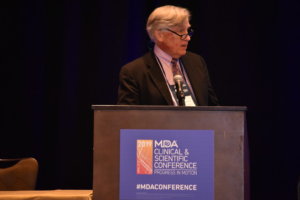
Dr. John Day
Patients diagnosed with DM have sleep abnormalities and, as a result, they may stay up late or seem restless. The session speakers stressed that it’s essential for patients and their families and caregivers to know that sleep abnormalities are part of DM and must be addressed by a neurologist.
The DM brain shows very little neurodegeneration, but MRI scans present clear white matter abnormalities in both DM1 and DM2 brains. Ultimately, it is necessary to remember that DM directly impacts behavior and cognition. Dr. Day and his colleagues are looking for biomarkers and white matter patterns that can be associated with the physiological changes in patients with DM to improve diagnosis and care.
Both Dr. Muntoni and Dr. Day expressed the significance of considering all cognitive and behavioral aspects when approaching treatment plans for neuromuscular disease. Equally essential is educating all the individuals impacted by NMD on all facets of the condition, and what to expect.
TAGS: Healthcare, MDA Clinical and Scientific Conference, Mental Health, Research
TYPE: Blog Post
Disclaimer: No content on this site should ever be used as a substitute for direct medical advice from your doctor or other qualified clinician.



